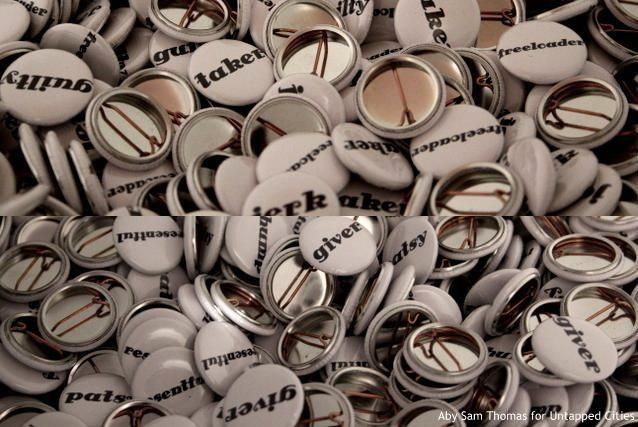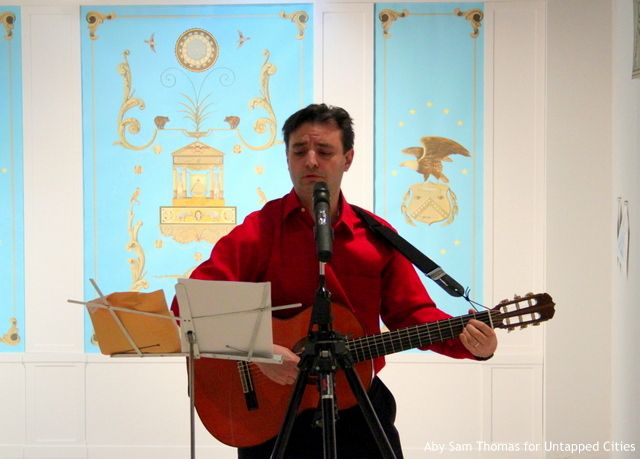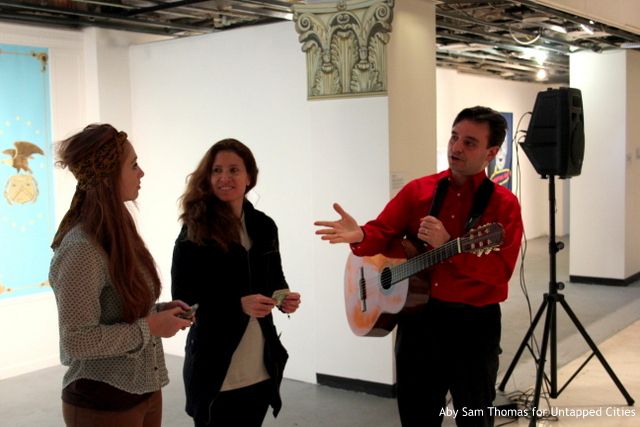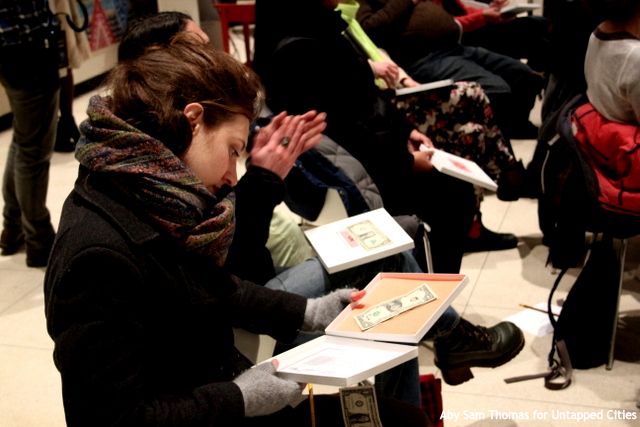Exclusive Gilded Age Arts Society Debuts New Public Exhibits in NYC
The American Academy of Arts and Letters, a venerable New York cultural institution, is a portal to art across time!

Untapped Cities is a proud media sponsor of No Longer Empty’s latest exhibition “How Much Do I Owe You?” at the abandoned Bank of Manhattan in Long Island City.

It may have lasted only for about 15 minutes, but Pablo Helguera had the audience transfixed during his presentation of “The Dictator Game” on a cold Thursday night in January. His performance, presented as part of No Longer Empty’s “How Much Do I Owe You” exhibition at the abandoned Bank of Manhattan in Long Island City, explored the influence money has on the way people behave and interact with others.

For instance, consider the feelings we have when others have money and we don’t. Now, consider the opposite scenario—when we are the holders of wealth (a.k.a. the dictators), do we share it with those who don’t have it, or do we simply want to keep it all to ourselves? Helguera’s performance, which he billed as being more of a social experiment, played out in three acts, in which money was given to volunteers from the audience, and they then participated in scenarios like the above.

While the antics of the volunteers elicited a lot of laughs and applause from the audience, the various situations being acted out were also stimulating thought and debate as well. Helguera’s game, which he interspersed with various protest songs, was aimed at dissecting people’s relationships with money, and how people’s want for money and power (even in the art world) can sometimes cause them to lose their own humanity.

In 1948, a plane that was deporting 28 Mexican farm laborers crashed near Los Gatos Canyon in California, leading to the deaths of everyone on the plane. News reports on the crash identified the American crew on the plane, while clubbing the perished Mexicans under the title “deportees.” Nobody seemed to be concerned about these dead laborers who had toiled on American farms—they were buried in a mass grave, and only 12 of them were ever identified.
This incident was the genesis of the song, “Deportee,” written by Woody Guthrie to protest the apathy shown toward the Mexican victims of the plane crash. The song, although written several years ago, is especially significant in today’s times, and by choosing this song to end his performance, Helguera drove home his point of how money, greed and the lure of profit can sometimes trump basic human sentiments of charity, kindness and mutual respect.
The No Longer Empty exhibition continues until March 13, and will be presenting a number of different programs in the coming weeks. Stay tuned for more coverage of No Longer Empty events and interviews with participating artists. Entry to the exhibition and the events is free, and a full schedule of the programming can be obtained at the No Longer Empty website, or by simply following them on Facebook and Twitter.
Get in touch with the author @thisisaby.
Subscribe to our newsletter